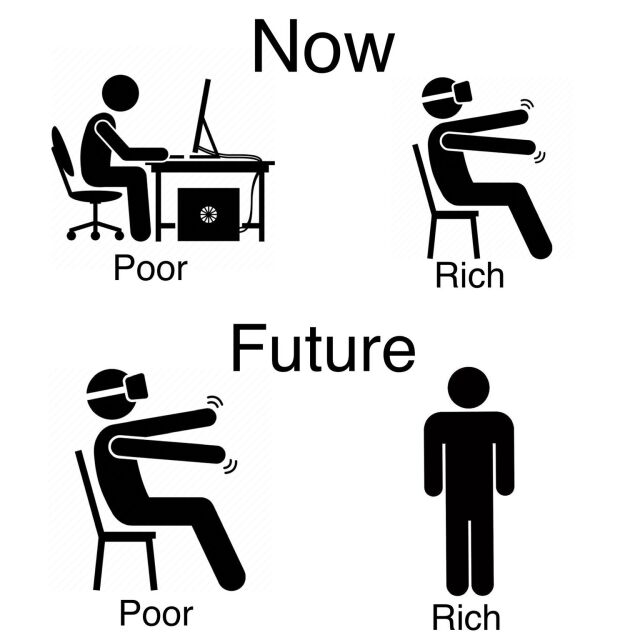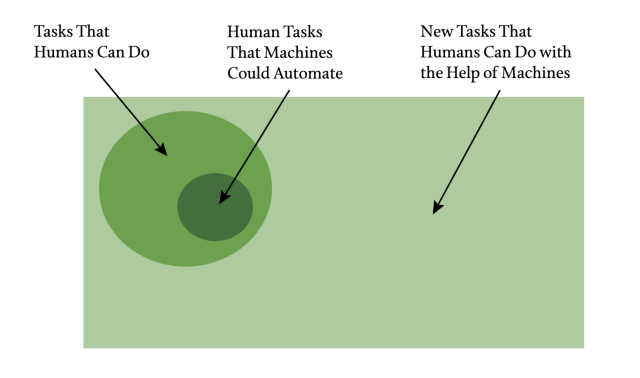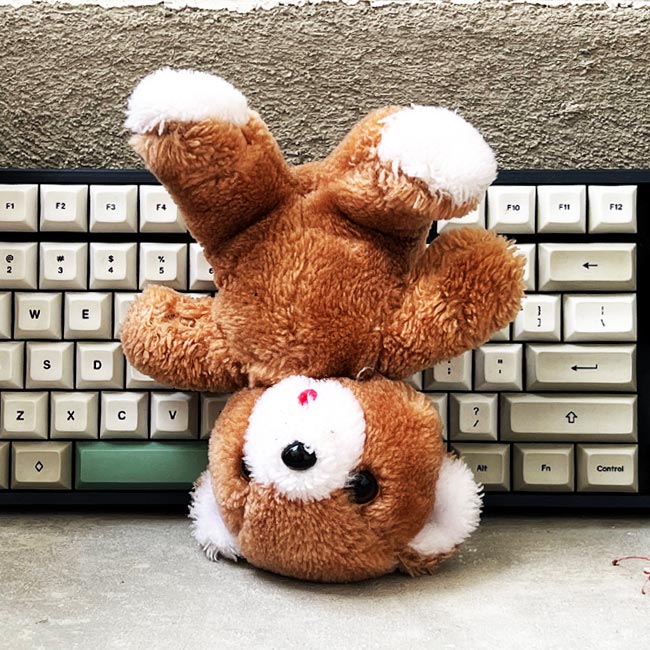I started to consume and appreciate coffee after I moved to Sweden in 2018.
Coffee is a key part of the Swedish culture of fika, and it’s used as a way to combat the dark winter days months.
For years, I’ve been considering the idea of buying a fancy coffee machine.
You know, like those that grind different beans to make various types of coffee brews.
My main motivation was to save time while having a wider range of coffee choices.
However, upon reflection, I ended up understanding that the experience of making coffee is as important to me as the coffee itself.
It turns out that I actually enjoy buying the coffee beans, grinding them by hand, putting the coffee powder in my moka pot, and taking the time to wait for the dark potion to be ready.
The whole experience is a time investment, yes, but I noticed that it’s also good for reducing the frequency of my coffee consumption.
So, modern coffee machines help to save time, but I still prefer making coffee myself.
The reason is that I enjoy the process, not just the result.
This situation made me think about the role of “the human experience” on many of the common things we do every day, and how AI is going to influence or change them in the future.
The rest of this article is my perspective on this matter, and where I believe current advances in AI are leading us.1

Last week I participated in Jfokus 2024 as a speaker.2 The main topic of the conference was the latest advances in AI and the impact of this technology on the software industry. I noticed a general acceptance of the huge potential of AI, and the many ways in which it could/would make everything more efficient for developers. For many of us, it looks like writing code, testing, deploying, documenting, or just creating any kind of digital content will be AI-assisted in the coming years. So, there’s a notable concern regarding the future market need for human developers. Honestly, I find the mere question freaking scary, not only because I’m a developer myself, but also because I believe that coding is a pretty advanced skill.
Beyond coding, today’s AI threatens to automate every aspect of our lives. One of AI’s major promises is to free us from seemingly mundane tasks. However, I’m worried that too much automation could relegate the “human touch” in our daily activities to second place. Activities and chores like making coffee, serving wine, cooking, painting, writing, playing music, making love, or chatting with friends could lose their essence. In particular, at its core, coding is a human activity in which people contribute by following conventions (a.k.a Git rules).
After a though or two, I realize that in most aspects of my life, I’m not looking for perfection, I’m rather seeking for the experience. For example, I had a great time at Jfokus this year. I met a lot of people, and I had a good share of fun because of that. I could have saved some time and money by watching the talks on YouTube later. However, I believe there is much less value in doing that because the act of being there, physically, is a big part of the experience. Nevertheless, I’m afraid that a future fueled by AI solutions could irremediably change my current perception.
Promises
AI promises to propel our species to the next level, whatever that may be. At the individual level, it involves freeing us from mundane tasks so that we’ll have more free time to do what we want. Imagine the kinds of optimizations that an Artificial General Intelligence (AGI) system could offer us! It could, for example, give us exactly what we want without rambling, because it will “know” us better than we know ourselves (and I’m not talking about Google here). No pain in searching for the right food, the right music, the right movie, the right book, or the right partner… you get the idea. Our AI companion will provide the exact match for our needs, always.
However, I’m afraid that technological advances of a similar scale have already happened before. And every time, we thought we were going to have more free time as well. Yet, we’re still working 40 hours a week, just about the same as our gatherer ancestors did. As humans, we witnessed the rise of agriculture 10,000 years ago, freeing us from the constant need to hunt and gather. We experienced the industrial revolution about 200 years ago freeing us from the need to produce everything by hand. We saw the rise of the internet in the last 30 years, eliminating the need to go to a physical library to find information. Do we have more free time now? Not really. The promise of human freedom through technological advancement didn’t materialize in the past, and it probably won’t happen now with AI either.
I would like to be positive and believe that a 4-hour workweek is closer than ever. I want to believe in the potential of an AI that understands my strengths and weaknesses and helps me to be more efficient. But I’m not sure if that’s going to happen, or even if being more efficient would make me happier. Instead, I think that AI is going to reshape the way we interact with the world, meaning that some new behaviors will be added and others will be removed. There is one particular thing that I’m concerned about: lacking the human experience.
Supremacy
AI systems have the potential to become ubiquitous. Unlike other breakthroughs, such as transportation and telephony, which required building infrastructure from scratch, AI solutions integrate seamlessly with our existing digital environment, including mobile phones and IoT devices. This means that, in the case of AI, the potential for adoption is broader than with any other technology. From a technological perspective, AI’s scalability is taken for granted.
AI models, like Large Language Models (LLMs), have absorbed the entirety of humanity’s open knowledge and learned from it. Unlike earlier machine learning techniques, they have begun to generate new knowledge from our existing internet corpus. The potential of these new models is simply astounding. They are already being utilized to tackle problems that were once considered exceedingly challenging.
Here are just three examples of applied AI that already impress me:
- FIGURE 01 Humanoid Robot that can learn how to make coffee.
- AMIE, an AI system that outperforms human doctors in every field (including empathy).
- GitHub Copilot, the world’s most widely adopted AI developer tool.
Imagine a world where a supremely powerful AI system decides and manages everything. Our daily activities would become significantly more efficient. But from a human perspective, would such a world become more interesting? I’m not entirely sure.
We have already witnessed machine learning systems assuming control over our decision-making processes. Take, for example, the Netflix recommendation system. It significantly enhances customer engagement, a boon from a business standpoint. However, its benefits for the wider audience remain questionable as more and more people are becoming addicted to the platform. Our ongoing struggles with social media addiction, and the phenomenon of the filter bubble, underscore the complexities introduced by these technologies. AI with its vast capabilities is, in the same way, as powerful as it is dangerous.
We now have VTubers and various forms of AI-generated “art” including music, books, movies, and games. Yet, to me, AI-generated content feels fundamentally different from creations born of traditional human creativity. Personally, I experience an aversion to AI-generated content. For some reason, the moment I realize it’s AI-generated my interest wanes.3
I wish this could be a matter of personal choice. Do we even have the right to decide to what extent we want to engage with AI? Unfortunately, the answer is no. Much like the internet, AI is set to become ubiquitous.
Acceptance
Let’s fully embrace the will of AI for a moment. Imagine it comes up with a decision, and we have no choice but to accept it. How comfortable would we be with the fact that we’re not in control anymore? Personally, I’m not very enthusiastic about the idea.
Take, for example, the use of AI in selecting the right candidate for a job. It might be better at it than humans in 80% of cases. But what about the remaining 20%? How can it understand the nuanced needs of a team or company? Or consider an AI deciding who goes to jail and who doesn’t. It might make the right decision in 99.9999% of cases, but what happens when it’s wrong? It’s concerning, and yet, it seems inevitable because it will be still better than human made decisions.
On the other hand, the things that we thought were inherently human, like art and creativity, are now succesfuly generated using AI. If in doubt, just look at the stuff created by Midjourney. Very soon there will see AI creating 3D objects, full movies, and even entire virtual worlds. Take it or leave it, our civilization will never be the same.
The Human Experience
My generation of Millennials have already chosen to make of internet the new electricity. Now, AI appears to be the brand-new internet. For example, today, you can buy any piece of clothing without ever meeting the seller in person. With AI, you could virtually bring back the seller. So, AI is simply taking it a step further, right? Wrong.
If you go to a bar, you will soon encounter AI bartenders serving the right wine and telling you exactly what you want to hear. But as humans, we still crave discrepancies, those unexpected events that occur from time to time. Strangely, that’s what we will end up remembering! How much of the human experience are we sacrificing for these AI efficiencies? To what extent will these efficiencies become widely accepted?
Something we learned from COVID-19 is that we still crave human interaction. People enjoy being with others. They watch videos on YouTube but still prefer attending live events.

As humans, we feel a sense of pride in whatever we do well. It is by overcoming struggles that we find our sense of fulfillment. In a future where the experience of overcoming troubles is minimized, what will be the source of our pride?
The Social Killer
It’s always the case that we try to envision new technology in terms of practical use cases for good. However, history has shown that technology, although intended for good, often ends up being used for nefarious purposes. The reality, measured against history, is unlikely to be good. The question is: how do we minimize this?
We are losing many social capabilities because of technology. Cell phones were once considered the best means to reduce human interaction. AI will surpass them in this regard. It will be interesting to see how AI elevates this to the next level.
Why is social media so bad? Perhaps those in charge want us to become addicted to their platforms by leveraging instant gratification tricks, so they can maintain their status. Corporations, driven by the pursuit of financial gain, seek any avenue to minimize costs and maximize revenue. On the other hand, at the business level humans are seen as a cost, whether in food production, software development, or car sales. Companies are already exploring how to eliminate human elements to optimize revenue, as that’s where they see the best way of cutting costs. But as a customer, I place high value on social interaction in many aspects of life.
Non-verbal interaction is incredibly important. You meet a person and learn from the entire experience of being human. Children traditionally learn from their parents, but now they are learning from the internet. Thus, they start imitating what they see online, which is not beneficial. In a few years, we may see children speaking like an AI.
Sparks of Hope
I would like to end this seemingly pessimistic article on a positive tone. Let’s be clear, AI has all the potential to augment human experiences to a level that we have never seen before. Perhaps, if AI frees up more of our time, we’ll have more opportunities to spend more time with other people. For example, I would rather go hiking or fishing in the mountains with my children in that case.

AI will augment our current capabilities. It appears that we will not lose our jobs as long as we learn to use and leverage AI effectively. However, those who fail to adapt may be left behind. Consequently, a new set of jobs and opportunities will emerge, as has happened in the past.
One example is the case of education. Today, we have human teachers managing classrooms with 10 or more children at a time. An AI that can provide a personalized education experience to every child in the world could be truly revolutionary. Every child could have a private teacher specifically trained to meet their needs. In this way, high-quality education would become accessible to everyone.
Another example is architecture. AI has the potential to design beautiful and structurally sound architectures, far surpassing our conventional, unappealing square buildings. Thus, beautiful architecture will become more accessible, opening up possibilities for a wider range of creative people.
However, my greatest hope for AI lies in its ability to reform politics. Imagine improving democracy by truly listening to and considering every voice, creating a true data-driven political system. For instance, AI could analyze the specific needs of every citizen and make optimal decisions at every level, from local neighborhoods to the entire country and beyond. This is a big hope for now, but it’s not impossible.
Summary
AI advances are going to change the way we interact with the world. With AI, we are going to have more free time and greater capabilities. One of its risks is of limiting even more our access to human experiences. If not properly managed, AI could become the new social killer in town. It’s all about the choices we make as a society. In any case, AI is already here, it’s not going anywhere, and it’s inevitable.


